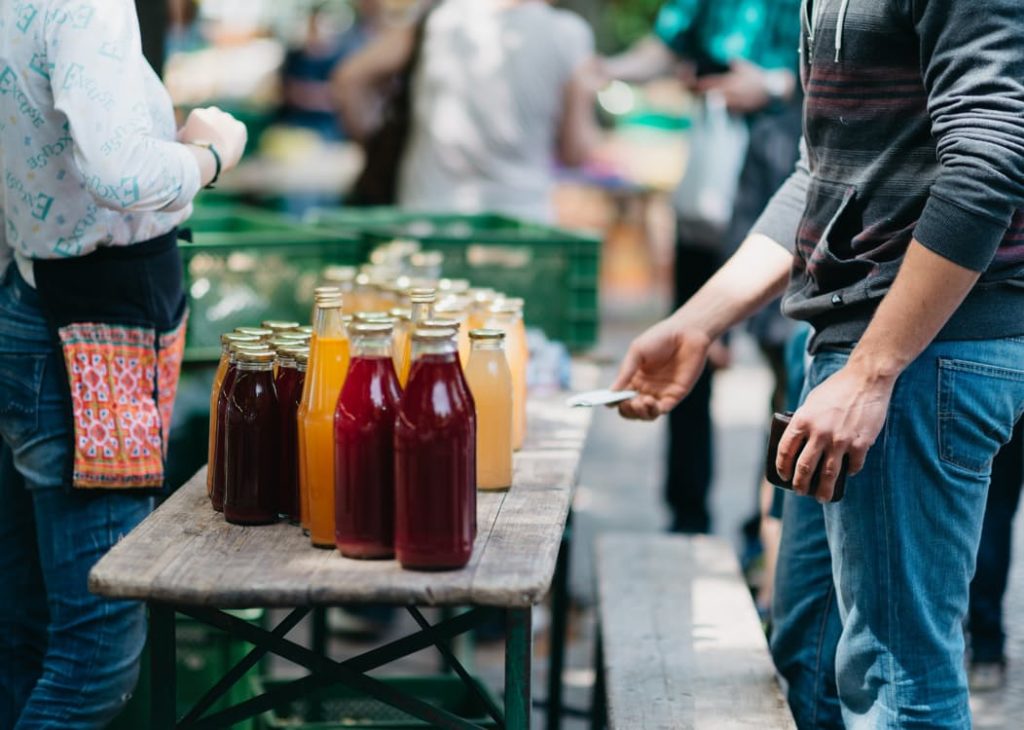Juicing isn’t all healthy – sure, a diet that’s composed of fruits and vegetables is essentially healthy, but this diet fad isn’t all that good if not done properly. The people you watched in the movie Fat, Sick and Nearly Dead may have inspired you to alter your life choices as well, but it’s important to remember that their lives were saved not by juicing alone, but juicing correctly.
Even if many people swear by juicing as their latest, most effective diet and cure for any ailment and influential celebrities are endorsing this trend, juicing isn’t all that healthy without balanced portions of nutrients you need from different food groups. Many fruits and vegetables pack these essential nutrients, but they all have to matched correctly to keep you really healthy. With all these conflicting opinions about juicing, starting your cleansing process can be tricky. Here, we’ll point out the facts and debunk the myths about the miraculous health benefits more and people believe they reaped from juicing.
Juicing is Good for Weight Loss
A juice cleanse will initially cause a significant weight loss. This can be dangerous for people who are already thin and bordering on underweight. Juicing for weight loss isn’t all that good, too. Your significant weight loss is only a temporary phenomenon as your body will gain what it lost when your cleanse ends and you need to go back to eating solids again. Some switch between solids and liquids to maintain their new weight, yet this only causes metabolic problems as your body is unable to reach a consistent weight. Juice cleansing over several days should not pose harmful effects if you are already healthy. What’s harmful is sustaining improper juicing techniques for prolonged amounts of time. If your goal is to be healthy or to help cure an ailment, you can look at what your diet consists of and instead focus on getting essential nutrients from wholesome and unprocessed foods in well-balanced meals. You can then complete your meals with a nutritious juice to increase your nutrient intake.
It Will Detox Your Body: Juicing Has Detox Powers
Those who swear by juice cleanses say it gets rid of toxins in your body. Truth is, your kidneys, liver and intestines are the only ones capable of getting rid of toxins. These vital organs are detoxifying your body every second. With a well-balanced and nutritious diet, plenty of water and regular exercise, these organs remain healthy and most effective at their detoxifying work.
Fruits Don’t Have Sugar
You know you’re doing it wrong if your juicing recipes do not follow the 80% vegetable and 20% fruit rule. Not all healthy foods are equal, so you should make sure that your choice of delicious fruits and vegetables give you the adequate amount of nutrients in each meal, not just the sweet and tasteful goodness of some fruits high in sugar.
Juicing Gives You Extra Nutrients
Juicing fruits and vegetables doesn’t provide your body with additional nutrients that you don’t get from traditional solid meals. Sticking to a liquid juice diet poses a lack of necessary compounds such as carbohydrates. This misconception stems from many people not consuming nearly enough fruits and vegetables. Some juicing advocates turned this into their marketing tool by saying that you will get additional nutrients you need from the juices they sell. In reality, we should include fruits and vegetables in daily well-balanced meals to reap the benefits of these nutrients
Your Stomach Needs Rest
Your stomach does not need to rest to remain healthy. Despite the fact that juicing requires less digestive processing, it isn’t healthier for your body than eating nutritious whole foods.
Juicing Only Has Healthy Sugars
The age of fast food, instant meals and hassle-free takeout and deliveries has given rise to poor nutrition and lack of healthy exercise habits. In the US alone, around 79 million are pre-diabetic. A Harvard University study in 2013 showed how juicing fruits high in sugar causes pre-diabetes that can progress onto full-blown diabetes. Excess amounts of sugar in fruits and the lack of enough fiber can cause a spike in your insulin levels. The results of this study show that people who ingest one or more servings of fruit juice everyday had increased risk of developing type 2 diabetes by over 20%; switching whole foods in place of sugary fruit juices would cause a reduction of up to 10% in their risk of having diabetes.
All Juices Are Safe for Everyone
Juicing is not the same for everyone. Just because it’s advertised as healthy doesn’t mean it’s safe for everyone. As we’ve shown, even with fruits and vegetables, you can still go wrong when they’re not consumed properly. If you have health problems such as thyroid or kidney conditions, you should consult your doctor before cleansing. If you have kidney problems, juicing fruits and vegetables high in potassium can be deadly. If you are on blood thinning medication such as Warfarin, spinach and kale juices which are high in vitamin K can cause a stroke or other circulatory problems. Kale, collards, bok choy and spinach are all high in glucosinolates which has been shown to cause hypothyroidism.
There is no better way to maintain a healthy body than to eat well-balanced, nutritious meals and exercise regularly. Juicing shouldn’t be used to substitute for well-balanced meals, but it can be a good way to further boost your nutrient intake.

